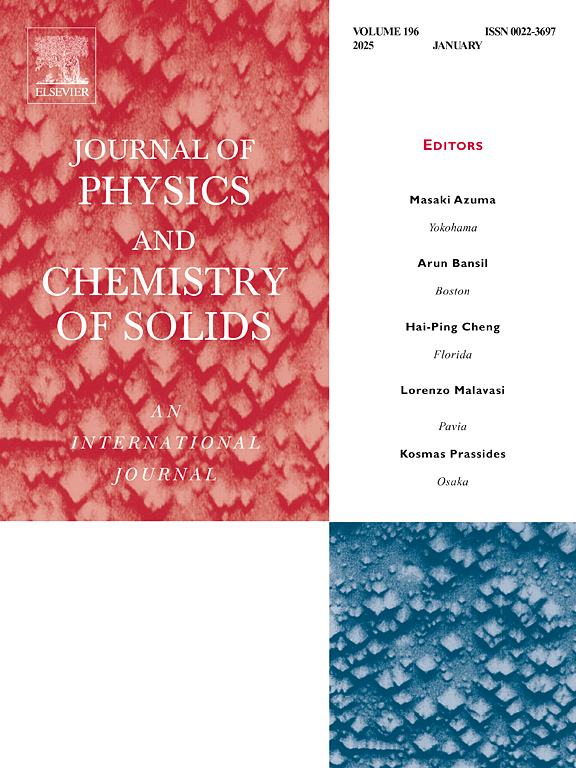机器学习辅助电池用高熔化焓有机化合物的设计
IF 4.9
3区 材料科学
Q2 CHEMISTRY, MULTIDISCIPLINARY
引用次数: 0
摘要
有机材料的热稳定性对下一代电池的安全高效运行起着至关重要的作用。本研究提出了一个机器学习(ML)辅助框架,用于预测和设计具有高熔化焓的有机化合物(ΔHm),这是增强热鲁棒性的关键特性。使用包含超过4800种化合物的数据集来训练和验证基于rdkit衍生的分子描述符的多个ML模型。在评估的算法中,神经网络模型以最小的过拟合表现出最好的泛化性能。然后将该模型应用于从哈佛有机光伏数据库中虚拟筛选超过50,000种化合物,成功地确定了50种具有高ΔHm和良好合成可达性的顶级候选化合物。这些结果突出了ML在加速发现用于储能应用的热稳定有机化合物方面的效用。本文章由计算机程序翻译,如有差异,请以英文原文为准。
Machine learning assisted designing of organic compounds with high enthalpy of melting for batteries
The thermal stability of organic materials plays a crucial role in the safe and efficient operation of next-generation batteries. This study presents a machine learning (ML)-assisted framework for predicting and designing organic compounds with high enthalpy of melting (ΔHm), a key property for enhancing thermal robustness. A dataset comprising over 4800 compounds was used to train and validate multiple ML models based on RDKit-derived molecular descriptors. Among the evaluated algorithms, the neural network model showed the best generalization performance with minimal overfitting. This model was then applied to virtually screen more than 50,000 compounds from the Harvard Organic Photovoltaic Database, successfully identifying 50 top candidates with high ΔHm and favorable synthetic accessibility. The results highlight the utility of ML in accelerating the discovery of thermally stable organic compounds for energy storage applications.
求助全文
通过发布文献求助,成功后即可免费获取论文全文。
去求助
来源期刊
CiteScore
7.80
自引率
2.50%
发文量
605
审稿时长
40 days
期刊介绍:
The Journal of Physics and Chemistry of Solids is a well-established international medium for publication of archival research in condensed matter and materials sciences. Areas of interest broadly include experimental and theoretical research on electronic, magnetic, spectroscopic and structural properties as well as the statistical mechanics and thermodynamics of materials. The focus is on gaining physical and chemical insight into the properties and potential applications of condensed matter systems.
Within the broad scope of the journal, beyond regular contributions, the editors have identified submissions in the following areas of physics and chemistry of solids to be of special current interest to the journal:
Low-dimensional systems
Exotic states of quantum electron matter including topological phases
Energy conversion and storage
Interfaces, nanoparticles and catalysts.

 求助内容:
求助内容: 应助结果提醒方式:
应助结果提醒方式:


